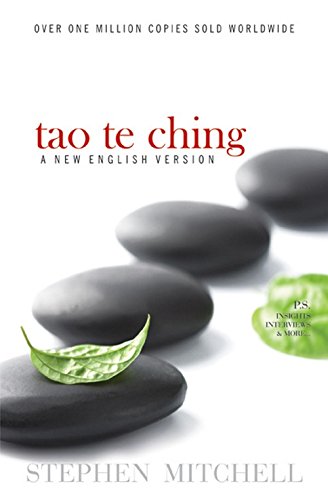

Despite knowing that we are part of a vast universe, on a massively complex planet shared with seven billion other human lives, we continue with the truly insane perception that we are the centre of the world. But because we are mired in a deep-seated and near-universal delusion. Not because we are physically alone, as we know loneliness hits heaviest in crowds.

In the words of David Foster Wallace, whose literary philosophy is a natural mirror of Taoist thought, the default setting for people is to be "uniquely, completely, imperially alone day in and day out". What would it be like to care for all things as much as we cared for our self? We all know the term, but do we really know what it means? "Love the world as your self then you can care for all things," closes verse 13 of the Tao Te Ching. Perhaps if we were more aware, we would worry less, and could see better what actually needs doing.īut the central thing the Tao Te Ching asks us to be aware of is not the world, but our self. "Practice not-doing, and everything will fall into place." This, from the third verse, sounds positively heretical to the work- and productivity-obsessed modern mind. What the Tao Te Ching does, time and time again, is attempt to show us how we might see things if we could spend more time in awareness, and less in naming. But what if we stop obsessively naming everything and instead just - pardon me while I slip in to full on hippy mode for a moment - rest in awareness? We're accustomed to perceiving our world and all the objects in it by naming them. Naming is the origin of all particular things." The second line of Mitchell's translation opens up the nature of the dysfunction. It's the compulsive need to answer unanswerable questions that is, in Taoist philosophy, the mind's great dysfunction. If that first line resembles the famous zen koan "what is the sound of one hand clapping?", it is because it's derived from a parallel philosophical tradition, and exists to fulfil the same purpose. Many readers derive more anger than comfort from the philosophy of the Tao Te Ching. Mitchell does a remarkable job of interpreting the more abstruse metaphors of the fourth-century mind for modern audiences - although, this does of course leave the possibility that it is actually the wisdom of Mitchell, not Laozi, shining through these words. The third is from the most popular modern translation by Stephen Mitchell. The tao that can be told, is not the eternal Tao.

The Tao that can be trodden is not the enduring and unchanging Tao.

Take this collection of more than 100 versions of the famous opening verse: Texts as old as the Tao Te Ching are subject to the problems of both translation and interpretation.


 0 kommentar(er)
0 kommentar(er)
